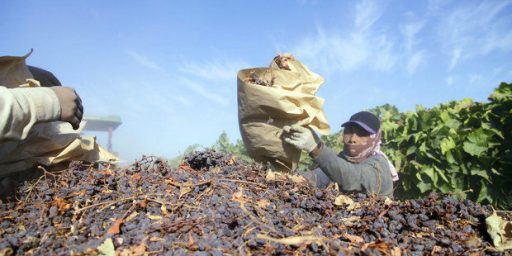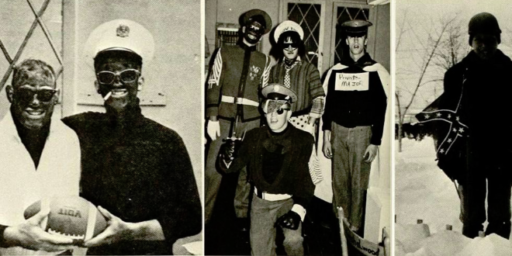Colombian Roses: Valentine’s Day and Free Trade
WaPo has an in-depth story on the Colombian floral industry that is worth a read: In rose beds, money blooms: How the rose trade lifted Colombia – and nearly erased an American industry.
The majority of roses Americans give one another on Valentine’s Day, roughly 200 million in all, grow here, the savanna outside Bogota, summoned from the soil by 12 hours of natural sunlight, the 8,400-foot altitude and an abundance of cheap labor.
[…]
It’s peak season for a massive Colombian industry that shipped more than 4 billion flowers to the United States last year — or about a dozen for every U.S. resident.
The Colombian industry has bloomed thanks to a U.S. effort to disrupt cocaine trafficking, the expansion of free-trade agreements — and the relentless demand by American consumers for cheap roses.
I remember seeing the vast greenhouses in the plateau high in the Andes north of Bogotá over two decades ago, and I can only imagine how much space they take up now. This is a complex tale of free trade and comparative advantage, but it does show how trade deals can foster industries abroad, at the expense of domestic industries, but also to the advantage of consumers:
Most Americans used to buy bouquets of roses from florists. But now the majority of flowers are sold in supermarkets, online retailers and places like Walmart, creating mass demand for a supply-chain-style business model that Colombia has raced to provide.
This model and the wave of Colombian roses have kept the price of these flowers at almost the same level for decades. They are often more expensive around Valentine’s Day, but Americans can often still buy a bouquet of a dozen red roses this week for less than $20.
That means each Freedom rose can make a journey of several thousand miles at around $1.50 a stem, with multiple businesses claiming a profit of several dimes off each flower.
The growers, importers, bouquet assemblers and retailers have learned the way to make money off roses is by selling hundreds of millions of them within a three-week window.
In the end, the flowers still come in at the low price and large volume that consumers demand, something U.S. growers complain they are unable to match.





